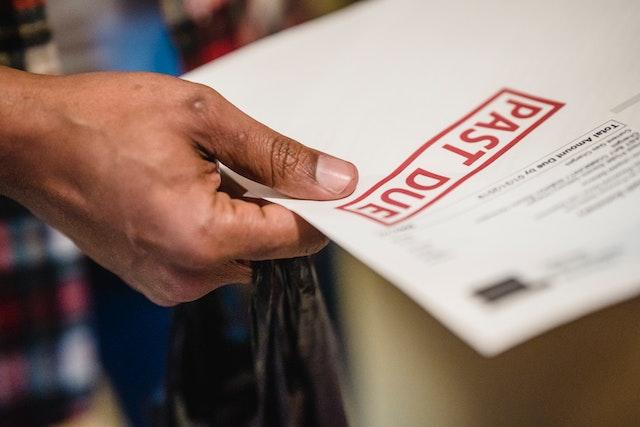Are you experiencing financial difficulties? It's understandable to be concerned, especially if keeping up with your mortgage payments has become challenging.
Despite maintaining regular payments over the years, unforeseen circumstances can lead to delays. While a missed payment isn't necessarily disastrous, it's vital to take swift action to avoid escalating issues. Failing to address this promptly could heighten the risks, potentially putting your financial well-being at risk and even leading to foreclosure of your property.
Is a late payment cause for concern?
While a delayed mortgage payment isn't catastrophic, it requires immediate attention due to potential consequences. Even a minor delay can result in negative outcomes.
It's recommended to promptly settle the payment or contact your mortgage lender to address the issue before receiving an official late notice. Typically, notices are issued after 30, 60, and 90 days if payments remain overdue.
If you continue to miss payments beyond three months, your mortgage lender may declare you in default and take actions to recover the outstanding amount.
Review your mortgage contract to fully grasp the specific repercussions of not adhering to the terms set by your financial institution.

What happens if you miss a mortgage payment?
When a mortgage payment is missed, lenders can take actions to recover the outstanding amount. Depending on the circumstances, this may involve late fees, reporting to credit agencies, or in more severe cases, initiating foreclosure proceedings on your property.
1. You could have to pay late fees
Late fees for missed mortgage payments are specified in your mortgage contract and vary between lenders. These fees are usually applied as soon as your payment becomes overdue. To prevent incurring these fees, it's crucial to ensure your monthly payments are made on schedule.
2. Your credit score could be impacted
Your credit report is a reflection of your financial behaviour, and it plays a crucial role in how lenders assess your loan applications and terms.
When you miss a mortgage payment, your lender reports this to the credit bureaus, which can have a negative impact on your credit report. As a result, your credit score may decrease. Accumulating missed payments can intensify this effect, posing challenges when seeking credit for other purposes, such as buying a new car.
Even if you later repay the missed amount and catch up on your payments, the late payment record remains on your credit report for several years.

3. You could go into default
Missing a mortgage payment causes your account to become delinquent. If this situation continues without resolution or further payments are missed, it may escalate to ongoing delinquency. This could prompt the lender to declare you in default.
Defaulting on your mortgage means that you have not fulfilled your contractual obligations with the financial institution. As a result, the lender has the right to take legal action against you, which could ultimately lead to foreclosure on your home.
4. You could lose your home
If you struggle to regain control and continue to accumulate missed payments, the likelihood of keeping your home decreases. Your financial institution may initiate foreclosure proceedings to address the delinquency.
Initially, you will receive a notice of exercise of mortgage rights from your lender via a bailiff. This document outlines the unmet contractual obligations and specifies the actions intended by the bank.
You then have a 60-day period to act: either rectify the situation by catching up on payments or inform your lender of your decision to voluntarily surrender the property.
Successfully resolving the situation at this stage will stop the foreclosure process, allowing you to retain ownership of your home. However, you remain liable for all associated costs, and your credit will be significantly affected.

Foreclosure
If you fail to take action, your lender may pursue legal measures to enforce its mortgage rights, which involves seeking a court order for you to vacate the property. This legal process is referred to as foreclosure.
Foreclosure entails navigating through the judicial system, a process that can extend over several months. Upon completion of the process, ownership of the property transfers to the financial institution. Subsequently, they will determine how to recover their funds, typically by:
- Requesting a judicial sale of your house.
- Taking possession of the property as payment for the debt owed.
Judicial sale
In contrast to bank repossession, where the bank seizes and resells a property openly, a judicial sale of a house is supervised by a judge. In this process, the judge establishes the terms of the sale, which can include:
- Auction
- Call for bids
- Private sale (traditional selling process).
The judge also determines the sale price and outlines the roles and responsibilities of involved parties in the transaction. Additionally, all purchase offers must receive the judge's approval.
It's important to note that a judicial sale usually does not provide legal warranties against hidden defects, placing the responsibility on the buyer to assume any risks related to the property's condition.
While a judicial sale resolves the mortgage, it might not completely absolve your debt to the financial institution. If the sale proceeds fall short of covering the entire loan amount, the bank may pursue you for the remaining balance owed.

Taking your home as payment
Unlike a judicial sale where your debt may not be entirely forgiven, this alternative option results in complete debt forgiveness by the lender. By choosing this route, the lender assumes ownership of your residence, and they cannot demand further payments from you, regardless of whether the property's value is less than your remaining debt.
However, if you have already paid off a significant portion of your mortgage, the property's value might exceed the outstanding debt. In such cases, court authorization is necessary before the bank can accept your home as payment. This precaution ensures that the bank does not acquire a property value higher than the amount owed, protecting your interests.
How to address payments default ?
To handle payment defaults effectively, taking immediate action is essential. While the best course of action is always to make mortgage payments on time, if financial difficulties arise, it's crucial to promptly communicate with your lender.
If your financial difficulties are temporary and you expect to be able to resume regular payments soon, consider discussing the potential for a payment deferral with your lender. This arrangement can grant you extra time to meet your obligations. Additionally, your lender might offer alternative repayment plans, such as reduced payments over a specific period, to assist you in managing your financial situation effectively.
Depending on your situation, you might also consider the following options:
- Mortgage refinancing
- Selling your home
- Exploring a consumer proposal
In any case, it's essential to address the situation promptly rather than allowing it to deteriorate further. Taking immediate action and maintaining open communication with your lender increases the likelihood of finding a viable solution.
Are you looking for a mortgage loan?
XpertSource.com can help you in your efforts to find a mortgage broker. By telling us about your project, we will refer you to top-rated experts, free of charge! Simply fill out the form (it only takes 2 minutes) and you will be put in contact with the right experts.

